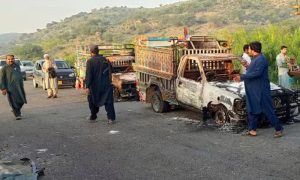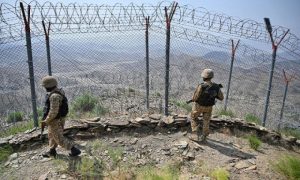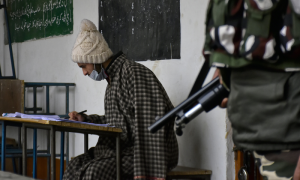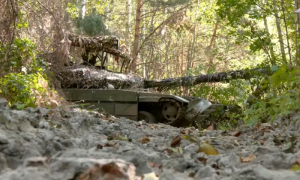“In an age where the shadow of terrorism darkens global security, the silent threat of nuclear terrorism demands our utmost attention.” Terrorism is a significant concern around the world, but one crucial aspect has been neglected: Nuclear Terrorism. This issue is particularly acute in the realm of Indian hegemonic agenda, a country where the convergence of insurgencies, transnational overtures, and blatant sale of Uranium fosters a unique but disturbing volatile environment. India stands out among the countries in this region for having particularly sensitive nuclear facilities. There are serious risks associated with India’s massive nuclear program, much of which is conducted without the International Atomic Energy Agency’s (IAEA) oversight. In this particular setting, the possibility of theft involving fissile elements such as uranium and plutonium is not only a domestic issue but also carries the potential to destabilize the entire region due to South Asia’s intricate network of geopolitical conflicts. Securing nuclear materials is more important ever since terrorists are demonstrating an increased inclination and capacity to use Weapons of Mass destruction (WMDs). The global stakes notwithstanding, South Asia may possibly be the turning point in this regard.
Concern has been expressed not just in the region but also worldwide over the frequency of thefts and illegal sales of radioactive materials in India. Considering the structured patterns of uranium theft, there is a distinct possibility that organized criminal groups may be collaborating with insiders at nuclear facilities. This highlights the pressing necessity to examine the security protocols at Indian nuclear stations and look into any connections between the people who were arrested owing to security voids present at these locations. Available reports indicate that Indian nuclear reactors and facilities are alarmingly unprotected. Many of these reactors are domestically produced, often through replication processes with minimal external expertise, which increase their susceptibility to these threats without a credible international oversight. While containment-equipped power reactors are said to be more resistant to sabotage than research reactors, the truth is that deliberate acts of sabotage might disable secondary systems and control rooms, leading to a core meltdown. The ensuing radioactive leak would have catastrophic repercussions, underscoring the urgent need for increased security at these sites. The Atomic Energy Regulatory Board (AERB) of India’s former chairman, Dr. A. Gopalakrishnan, stating that out of 130 safety-related issues, 95 of them required prompt treatment at nuclear sites in India. In a thorough 3,000-page report that he delivered to the IAEA in 1996, he made these observations.
Similarly, nuclear expert Christopher Pine of the Natural Resources Defense Council in Washington highlighted these worries, pointing out that Indian power facilities are among the poorest in the world for safety records in addition to having the lowest capacity factor worldwide. According to a 1993 UN report, India has six to eight times more occupational exposure hazards than the world average when compared to the country’s energy production. India, on the other hand, has rejected these UN statistics, claiming they are unreliable.
The reckless and radical actions of the Modi government have come under fire on several occasions as reports of radioactive material theft and sales in India keep coming to light. These concerning events endanger the lives of common Indian residents in addition to exposing the inadequate performance of the current administration. A number of incidents involving irrelevant individuals being discovered in possession of extremely dangerous materials have surfaced in recent years. One such instance occurred recently in Bihar, where three suspects were found to be in possession of 50 grams of radioactive material with a cost falling in billions. Concerns over the safety and security of the Indian people have been raised by the Modi government’s incapacity to get such dangerous materials, which has garnered harsh condemnation from both domestic and international quarters.
This is not a new worrying pattern. In May 2021, a scrap merchant discovered 7 kilograms of radioactive uranium valued at Rs. 210 million. Two Indian nationals were detained in Nepal in 2022 on suspicion of trying to sell uranium that had been smuggled out of India. It has been revealed that over 200 kg of radioactive and nuclear material disappeared from Indian installations in the last 20 years, suggesting a significant breach in security. The internal problems facing India, including corruption, weak law enforcement, and insufficient regulatory frameworks, have led to ongoing security gaps that facilitate the theft and illegal trading of nuclear materials. Because these problems are systemic, even stepping up security at nuclear sites will not be sufficient to stop these kinds of incidents from happening in the future. A comprehensive strategy is necessary, one that builds a culture of responsibility and openness inside the organizations in charge of nuclear security while simultaneously bolstering regulatory monitoring and law enforcement. The security of the area and the world is seriously threatened by the high likelihood of future incidents in the absence of such measures. Pakistan has continually demanded a comprehensive inquiry into these occurrences and emphasized that New Delhi reveals how these hazardous chemicals manage to fall into the wrong hands on a regular basis. The implications are too great to overlook, and the international community is calling for accountability and strict measures to stop such violations with catastrophic consequences.























